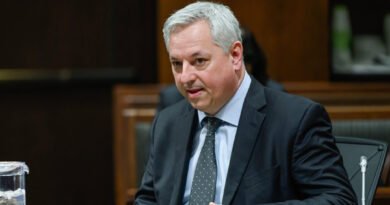Examination of the Opposition’s Summer Campaign Strategy
As Parliament breaks for the summer, the leaders of the various federal parties will be busy campaigning across Canada to cement their support in “safe” seats, while potentially taking away key ridings from their opponents, according to politicos.
“The Conservative party is well ahead in every region in the country, so he has the luxury of spending a lot of time in Quebec, because he doesn’t have to defend Conservative seats anywhere else in the country,” says Nelson Wiseman, a professor emeritus of political science at the University of Toronto.
However, NDP Leader Jagmeet Singh will likely target ridings where his party is trailing behind the Liberals, according to another political scientist.
“There might be a dynamic where Singh is going to start looking at those ridings where it’ll be tight between an NDP and a Liberal,” said Greg Loerts, a consultant with BlueSky Strategy Group.
The next federal election may not happen until well into 2025, as the supply-and-confidence agreement between the governing Liberals and the opposition New Democrats has helped to keep Prime Minister Justin Trudeau’s minority government in power following its re-election in 2021.
Poilievre Focused on Quebec
Since Parliament rose for the summer, Mr. Poilievre has been campaigning in Quebec by attending events such as the Bagotville International Air Show, a gathering of fishermen in La Baie, the Charlevoix Rodeo, and Saint-Jean-Baptiste Day events. He has also gone on a string of door-knocking sessions with Conservative candidates in several cities.
While Mr. Poilievre will campaign in other provinces this summer, he is currently focused on picking up seats around the edges of Montreal, a city that the Liberals have typically held in recent elections, Mr. Wiseman said.
“I think that’s what he’s doing, and most of his travelling will be in rural parts of Quebec where there is a much stronger ’small-c’ conservative appetite,” he added, noting that the historical tendency of the Liberals and Bloc Québécois to split the vote bodes well for the Tories.
Mr. Loerts says that Mr. Poilievre will also be preparing to eventually form government by making connections with business, cultural, and political leaders across Canada during the summer.
“If you form government in 2025, you want to hit the ground running, and so he needs to build these relationships,” Mr. Loerts said. “Otherwise, he’s going to face a lot of resistance to his agenda if he comes in.”
Bloc’s ‘Quebec Only’ Defence
Meanwhile, Bloc Leader Yves-François Blanchet has been taking jabs at the other parties, saying his party is the only one that cares about Quebec.

“It is only … the Bloc Québécois which carries and defends the values and interests of Quebec.”
As Mr. Poilievre ramps up his campaigning in Quebec, Mr. Blanchet is increasingly targeting him as well.
Singh to Focus on Past Near-Wins
While most MPs will spend the summer attending events in their own ridings to raise their profile and shore up support, all of the party leaders will travel throughout Canada “strategically,” Mr. Wiseman said. He pointed to Mr. Singh making frequent trips to B.C., along with a recent visit to Edmonton.
“That makes sense, because they’ve got a number of seats there and they’re afraid of losing a number of them to the Conservatives,” he said.
According to Mr. Loerts, the New Democrats have long had a strategy of involving their leaders in supporting specific candidates in both target ridings and those they want to hold on to.

“I’d expect that we see some of that groundwork done by Jagmeet Singh specifically, throughout the summer. This is a good time to go and do it,” he said.
Mr. Loerts predicts that the NDP will begin targeting ridings where support is close between the Liberals and NDP, such as in cities like Ottawa and Toronto. “Both of them, where the NDP is the second party every single time—they might start looking at those and say, ‘Trudeau is vulnerable here. Let’s go after who the incumbent MP is,’” he said.
While the riding of Ottawa Centre has been held by the Liberals since 2015, the NDP held the seat from 2004 to 2015. In the last few federal elections, the NDP has also consistently placed second in ridings like Toronto Centre, University—Rosedale, Toronto—Danforth, and Beaches—East York.
Meanwhile, Mr. Wiseman said the prime minister will be on the defence during the summer, travelling to Liberal strongholds that may be at risk. “He’s not going to spend much time in Alberta,” he said.





